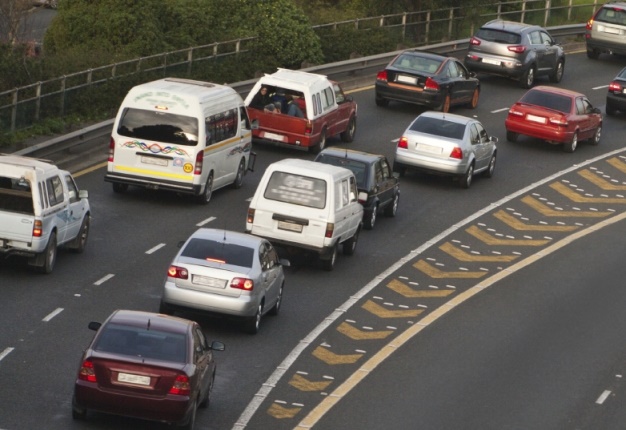
Washington - US government regulators and the auto industry are taking a more lenient approach than safety advocates like when it comes to phasing in automatic braking systems for passenger cars, according to records of their private negotiations.
The technology automatically applies brakes to prevent or mitigate collisions, rather than waiting for the driver to act.
It's the most important safety technology available today that's not already required in cars.
Voluntary agreement
Such systems should be standard in all new cars, says the National Highway Traffic Safety Administration.
Instead of mandating it, the government is trying to work out a voluntary agreement with automakers in hopes of getting it in cars more quickly.
But safety advocates say voluntary agreements aren't enforceable and are likely to contain weaker standards and longer timelines than if the government had issued rules.
There are about 1.7 million rear-end crashes a year in the US, killing more than 200 people, injuring 400 000 others and costing about $47-billion annually. More than half of those crashes could be avoided or mitigated by automatic braking or systems that warn drivers of an impending collision, NHTSA estimated.
Clarence Ditlow, executive director of the Center for Auto Safety, said: "Consumers are going to come up the losers in this process."
Meeting minutes obtained by The Associated Press of four of the meetings that NHTSA has held with automakers since October show the government is considering significant concessions.
Records of a meeting on Nov. 12, show that automatic braking systems would be allowed that slow vehicles by as little as 5 mph before a collision. Manufacturers would be allowed to exempt 5% of their vehicles from the standard. Some automakers had said it would take longer to ready manual transmission vehicles for the technology.
Phase out or redesign
The discussion included an additional exemption for models that manufacturers intend to phase out or redesign.
The minutes from the fourth session, on December 9, indicate that some automakers say they won't be ready to include the technology in 95% of their vehicles until model year that begins in September 2025. NHTSA and the Insurance Institute for Highway Safety objected, saying such a long timeline "was too late for this effort to be seen as a serious effort."
Automakers are now being polled to see if they can equip 95% of their vehicles by the model year beginning in September 2022.
The agency is required by law to provide meeting minutes of such negotiations and to make them public. NHTSA provided minutes of three of the meetings to the AP; the fourth was obtained from safety advocates.
Joan Claybook, a safety advocate and NHTSA's administrator during the Carter administration, said: "This is what happens when you start negotiating with the auto industry.
"They want to negotiate this out and they want to negotiate that out," and establish a deadline driven by their production schedules rather than safety considerations.
Legal process
Besides NHTSA, meeting participants included 16 automakers, two auto industry trade groups and the insurance institute, the insurance industry's safety research arm. Representatives from Transport Canada, the Canadian government's auto safety regulator, also attended.
Mark Rosekind, NHTSA's administrator, has said the federal rule-making process is so cumbersome and time-consuming that a voluntary agreement is likely to get the technology into all cars faster. He said regulations remain an option.
The Association of Global Automakers, which has taken the lead for the industry on the issue, didn't immediately reply to a request for comment.
Russ Rader, a spokesman for insurance institute, said: "Regulations can be too rigid when technology like this is changing quickly."
"A complicated regulation could make it more difficult for the automakers and their suppliers to continue to develop the systems."
Automatic braking is already available in dozens of car models, but typically as a pricey option on higher-end vehicles. Subaru offers it on the Impreza sedan, for example, as part of a $2895 safety package.




 Publications
Publications
 Partners
Partners















